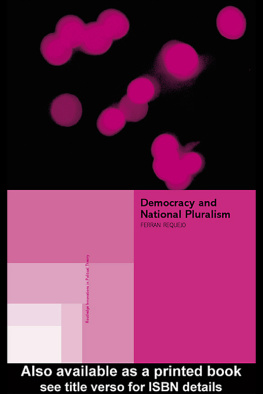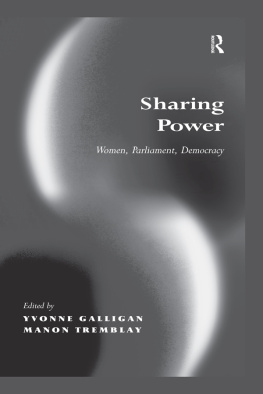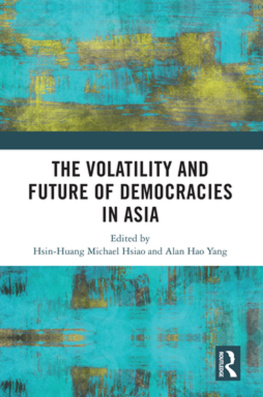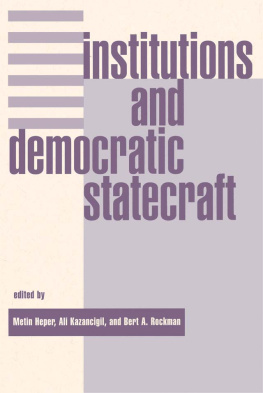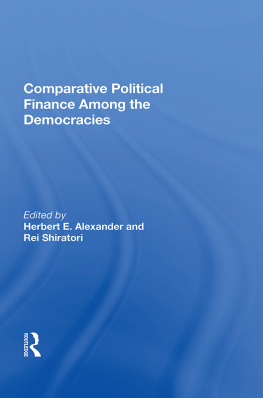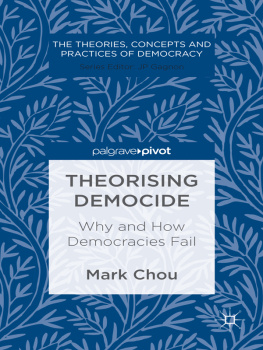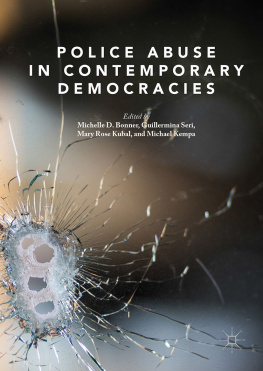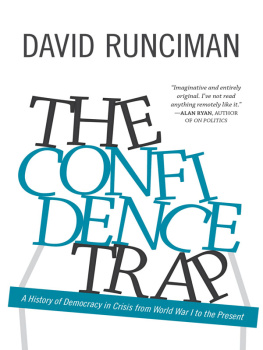Great events in history illuminate the human condition. Usually, the moral of the story is applicable to earlier as well as subsequent occurrences, and to many things by analogy and extension. One such event was the career of a monstrously evil political leader, Adolf Hitler.
In the aftermath of the Second World War, and in the midst of the prosperous Pax Americana of the post-war era, a considerable literature extolling the virtues of political democracy has developed, especially in the United States. To those who, like the present author, respect the ideals of human liberty, individual dignity, and the rule of law, the moral claims of democracy are both understandable and admirable. But in human affairs, success, or what seems like success, often leads to excessive and misplaced confidence. In the post-Second World War period the idea has taken root that democracy, apart from any moral virtues it may possess, is a fix-it scheme. In effect, it is the notion that letting people do, and be, whatever they like, is also the best way of solving any and all social problems. It is a claim not about right but about efficacy. There is much about the career of Adolf Hitler from the days of his political struggle in the 1920s to his ascendancy and fall in the 1940s which suggests that the claims of democratic efficacy are spurious. Myth has obscured reality. It has clouded the memory of the past and the perspective on the present and the future.
The many triumphs of Adolf Hitler from the 1920s to the 1940s undermined the democratic myth in two important respects. They demonstrated the relative ineffectiveness of democracies in a variety of crisis situations. They also, from the collective experience of all those millions of people who supported and cooperated with Hitler, and also all those millions who passively watched him conduct his international crime spree, undermined the liberal assumptions about human beings. The terms rational and benign do not fit those situations well; perhaps no better than a corset fits an octopus. In fact, it was political democracy that nourished Adolf Hitler to power. It was the medium which the future Fuehrer successfully cultivated. Democratic public opinion of the 1930s, in Germany and out, demonstrated much more irrationality in many different ways than it did that wonderful, and largely mythical, attachment to reason so fondly postulated by various democratic ideologues.1
Through the vices of myopic self-indulgence and domestic discord, the democracies of the world allowed Adolf Hitler to achieve enormous power in Germany and in Europe by the end of the 1930s. Between 1939 and 1941 they came much closer to losing the war than is now generally admitted, and ultimately won it largely, if not entirely, because of fortuitous circumstances. One of these was that the Fuehrers genius let him down; another was some critical assistance from a very undemocratic source, i.e., Stalins Russia.
In this period of political history (from the 1920s to the 1940s) there is especially one theme important not only for what occurred then but for what occurs now, and for what may occur in the future. That theme is the critical relationship among information, freedom of discussion, and social action.
If ever there was reason to doubt liberal assumptions about the reliability of public opinion responding to truth and facts with sensible and prudent actions, Hitlers challenge to the rest of the world strongly affirmed it. Moreover, what makes this tragic episode in history so significant for our knowledge of democracy is that it involved not the failure of one, or two, or three democratic systems. In the 1930s, in the sense of collectively understanding the threat which Hitler posed for the world at large; responding to this threat both by individual states and by collective, international action; opposing Hitler by force of arms when the war broke out in 1939; in all these respects, the failures of world democracy were multiple, prolonged, and general.
There are no heroic tales to tell about world democracies between 1933 and 1939. There are not even encouraging ones during that period. Between 1939 and 1941 what sometimes passes for great Allied victories was largely self-serving exaggeration. That was the true democratic legacy from that time to the present and the future.
Naturally, what has obscured the story of Hitlers confrontation with the democracies was his ultimate downfall in 1945. The blunders and transgressions of the winners tended to be forgotten. The great successes of the losers tended to be overwhelmed by the ultimate result, however fortuitous that might have been.2



